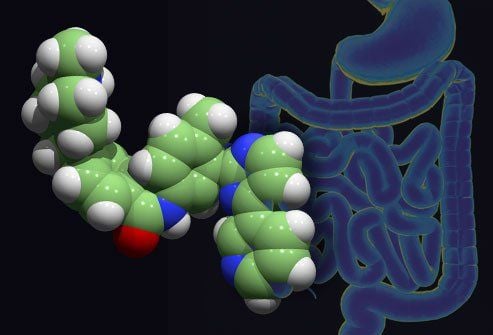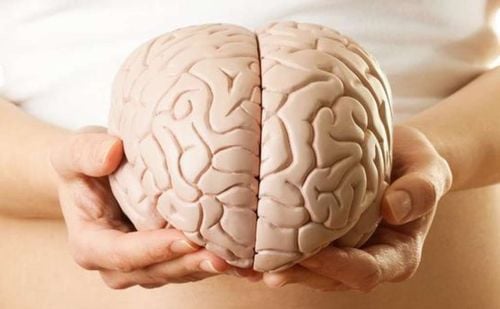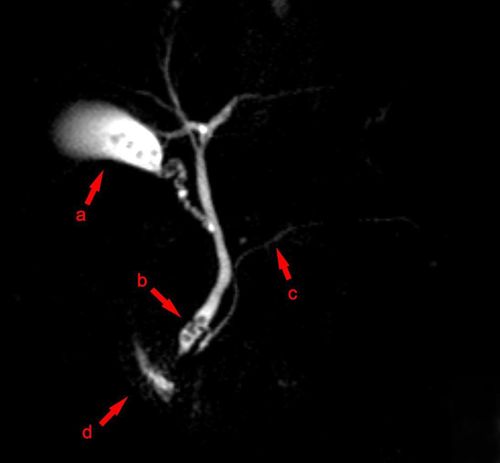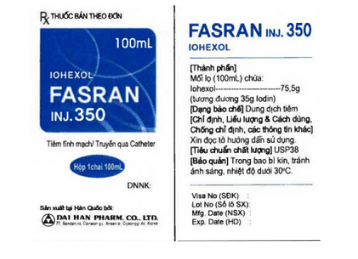This is an automatically translated article.
The article is professionally consulted by Master, Doctor Nguyen Quang Duc - Doctor of Nuclear Medicine - Department of Diagnostic Imaging and Nuclear Medicine - Vinmec Times City International General HospitalMagnetic resonance imaging (MRI) of the brain (brain MRI) is one of the methods used to effectively diagnose brain diseases, including brain vascular malformations. So does magnetic resonance imaging (MRI) brain have any effect?
1. What is magnetic resonance imaging?
Magnetic Resonance Imaging (MRI) is a technique commonly used in medical diagnostics to create anatomical images of the body using magnetic fields and radio waves. This method is safe for patients, does not use X-rays like X-rays, has high accuracy, so it is trusted by doctors in diagnosing diseases, including brain diseases such as cerebral vascular malformations.Modern methods of magnetic resonance imaging are increasingly proving effective and popular all over the world. Today, MRI is used to diagnose nearly every organ in the body.
Magnetic resonance imaging (MRI) images with very high contrast, detail, sharpness, clarity, good anatomy and ability to create 3D are very good support for disease diagnosis for pathologies from simple to complex . In many cases, the diagnostic efficiency of MRI is much better than that of long-standing diagnostic methods such as ultrasound, X-ray, CT scan...
2. What parts can MRI scan?
Magnetic resonance imaging (MRI) is currently indicated for the following body parts:2.1 Cranial scan Can detect brain tumor, cerebrovascular accident, cranial nerve tumor, cerebral hemorrhage, cerebral infarction, traumatic brain injury, cerebrovascular malformations, epilepsy, encephalitis, white matter degenerative diseases, meninges, congenital brain malformations...
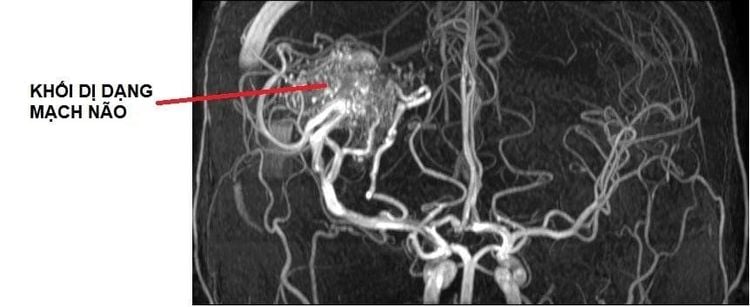
Chụp cộng hưởng từ MRI chẩn đoán bệnh dị dạng mạch máu não
2.3 Neck scan Can detect neck injuries such as inflammation, tumors, lymph nodes neck area.
Especially, neck MRI helps in early detection and accurate diagnosis of brachial plexus lesions.
2.4 Spine MRI helps accurately diagnose diseases of the spine, ligaments, discs such as degeneration, vertebral settlement fracture, disc herniation, disc inflammation and paravertebral software. At the same time, it also supports the diagnosis of spinal cord diseases such as myeloma, inflammation, trauma, ...
2.5 Abdominal - pelvic imaging Helps detect liver and biliary tract diseases such as cholangiocarcinoma, liver tumor, gallstones... ; pathologies of the pancreas, kidneys, spleen, and adrenal glands; pelvic diseases such as prostate cancer, colorectal cancer, uterine tumor, vaginal prolapse, ovarian tumor.
Especially, MRI supports accurate assessment of endometrial cancer, prostate cancer, cervical cancer...
2.6 Musculoskeletal MRI gives clear images of joint alveolar structures , bones, cartilage, tendons and ligaments, early detection of degenerative diseases, inflammation, ligament tear injuries, joint effusion.
2.7 Breast MRI Early and accurate diagnosis of breast lesions such as benign, malignant, inflammatory breast tumors
2.8 Fetal MRI MRI is a highly valuable method in diagnosing abnormalities in the fetus, complex birth defects. Doctors often appoint MRI in difficult cases of ultrasound examination such as pregnant women with oligohydramnios, amniotic fluid, obesity or assessing fetal movements.
In addition, MRI is also used in the diagnosis of cardiovascular diseases such as vascular stenosis, myocardial infarction, lymphatic system disease...
3. Does magnetic resonance imaging (MRI) of the brain have any effect?
Not only creating detailed, clear, fast images, which have higher diagnostic value than other methods, MRI brain scan has the outstanding advantage that it does not use dangerous radiation to the brain. human health as well as organ structure capture.Therefore, it can be said that, at present, magnetic resonance imaging (MRI) of the brain is still assessed as not causing any harm or affecting anything and is a highly technical and harmless method for patients if they follow the guidelines well. magnetic resonance safety issues. However, the machine's high magnetic field can affect metal implants in the body as well as the head and brain areas. Therefore, the patient needs to notify the MRI staff if there is a machine, metal implant, electronic device, including metal shrapnel, dentures... All will be removed before you perform the procedure. currently having an MRI. In addition, when taking an MRI, for safety and for the best results, patients also need to remove metal objects and jewelry such as earrings, hairpins, necklaces, piercings... other related items. Technical staff will help you in more detail on this issue. In the case of an MRI that requires injection of a magnetic contrast agent, which is completely non-toxic to the body, however, the medical staff will still ask about a history of oral allergies and kidney disease to ensure safety. Occasionally, the drug causes an allergic reaction with manifestations such as dizziness, headache, nausea, vomiting, numbness of hands and feet & rash. These allergic effects are usually mild and quickly disappear after antiallergic medication.
4. Magnetic resonance imaging at Vinmec
Vinmec Da Nang International General Hospital is currently one of the major hospitals with modern machinery and equipment for general medical examination and treatment and accurate and modern MRI for brain diseases, cerebral blood vessels in particular.Patients who perform MRI at Vinmec will be supported by the support staff, technical staff clearly guide the manipulations, the best procedure, safety issues, ensuring good diagnostic images without any problems. harm the patient.
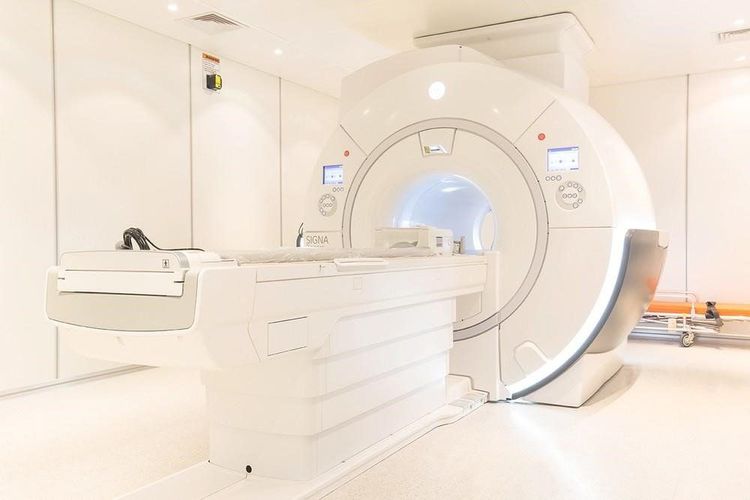
Máy chụp cộng hưởng từ 3.0 Tesla công nghệ Silent tại Vinmec
The machine now applies safe magnetic resonance imaging technology. Safe, most accurate today, no X-ray, non-invasive. In particular, Silent technology is very beneficial for patients who are young children, the elderly, patients with weak health or have just had surgery.
Doctor - Doctor Ton That Tri Dung - Head of the Department of Examination and Internal Medicine has nearly 30 years of experience in stroke neurology with many awards in scientific research. Particularly for cerebral vascular intervention, the doctor has performed for 6 years and each year takes and intervenes about 480 - 500 cases
To learn more about Brain MRI technique at Vinmec Danang International Hospital can be contacted HERE






